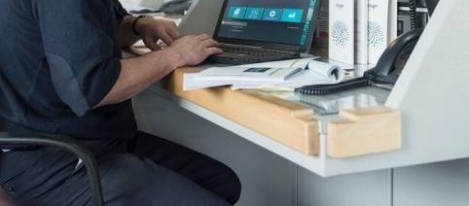July 11, 2016
London planning to hide Walkie Talkie with…more tall buildings? 0
 It was Frank Lloyd Wright who said ‘a doctor can bury his mistakes but an architect can only advise his clients to plant vines’. His words will be ringing in the ears of London planners who have decided they need to do something about the blight of Rafael Viñoly’s reviled Walkie Talkie building at 20 Fenchurch Street, according to an article in the Architect’s Journal. The building was last year’s Carbuncle Cup winner and has been held responsible for creating wind tunnels in the streets at its base and even frying people, shops and cars around it with reflected solar rays. Remarkably, the solution offered by planners appears to be to surround it with other tall buildings to hide it (while also creating new office space). Gwyn Richards, head of design for London, told the AJ: ‘One issue that has been brought to our attention is whether it would be preferable to have the Walkie Talkie effectively moved into the cluster so that it is less assertive. We are hearing from stakeholders saying that it would benefit the cluster to bring it into a tightly knitted group.’
It was Frank Lloyd Wright who said ‘a doctor can bury his mistakes but an architect can only advise his clients to plant vines’. His words will be ringing in the ears of London planners who have decided they need to do something about the blight of Rafael Viñoly’s reviled Walkie Talkie building at 20 Fenchurch Street, according to an article in the Architect’s Journal. The building was last year’s Carbuncle Cup winner and has been held responsible for creating wind tunnels in the streets at its base and even frying people, shops and cars around it with reflected solar rays. Remarkably, the solution offered by planners appears to be to surround it with other tall buildings to hide it (while also creating new office space). Gwyn Richards, head of design for London, told the AJ: ‘One issue that has been brought to our attention is whether it would be preferable to have the Walkie Talkie effectively moved into the cluster so that it is less assertive. We are hearing from stakeholders saying that it would benefit the cluster to bring it into a tightly knitted group.’







 The overwhelming majority of UK employees (81 percent) are working beyond their contracted hours, claims a report from recruitment firm
The overwhelming majority of UK employees (81 percent) are working beyond their contracted hours, claims a report from recruitment firm 




 Tim Peake’s recent return home from space at the end of a six month stay in the International Space Station highlighted just how essential it is for people to stay in contact with their friends, family and the rest of the world, literally from wherever they may be. Of course, back on Earth we now take it for granted that we are in a state of constant connectedness to the rest of the world. So the idea of someone being out of contact, even for brief periods of time, strikes us as odd. Perhaps that partly explains our fascination with the experiences of astronauts and other people who cannot take connectivity for granted. But it’s not just astronauts who have to consider how to enjoy the connectedness that we normally assume to be ours by right. People who work at sea face the same challenge and you could argue that it is more important for such truly remote workers to be in contact with other people and the Internet. So who fares better when it comes to achieving connectivity?
Tim Peake’s recent return home from space at the end of a six month stay in the International Space Station highlighted just how essential it is for people to stay in contact with their friends, family and the rest of the world, literally from wherever they may be. Of course, back on Earth we now take it for granted that we are in a state of constant connectedness to the rest of the world. So the idea of someone being out of contact, even for brief periods of time, strikes us as odd. Perhaps that partly explains our fascination with the experiences of astronauts and other people who cannot take connectivity for granted. But it’s not just astronauts who have to consider how to enjoy the connectedness that we normally assume to be ours by right. People who work at sea face the same challenge and you could argue that it is more important for such truly remote workers to be in contact with other people and the Internet. So who fares better when it comes to achieving connectivity?




















July 6, 2016
Which aspects of workplace design are most important to personal wellbeing? 0
by Marc Bird • Comment, Wellbeing, Workplace design
More →